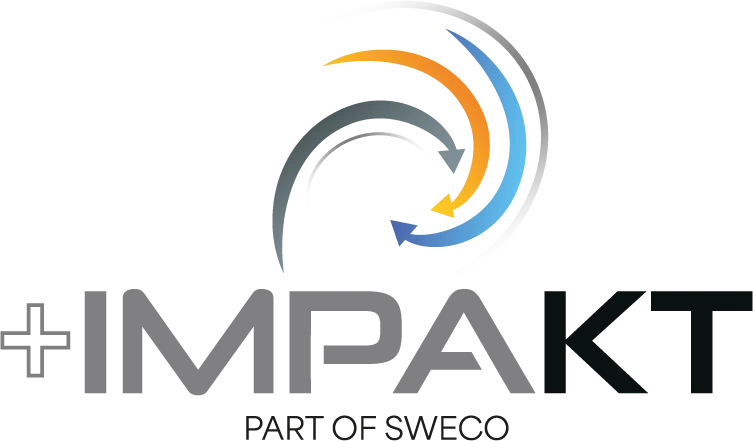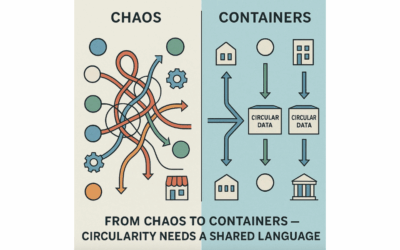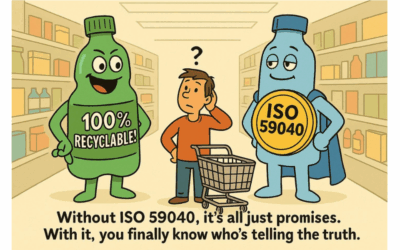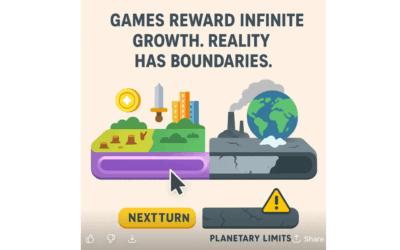As Europe intensifies its efforts to achieve a circular economy, the European Defence Agency (EDA) has taken a proactive role in this evolution by launching the Incubation Forum for Circular Economy in European Defence (IF CEED)—a collaborative platform designed to integrate circular economy (CE) principles into defence and support the EU’s Green Deal objectives.
Within this initiative, the importance of data as a key enabler for circularity was quickly identified. By improving access to accurate and standardized product data, stakeholders across the value chain can better manage repairs, reuse, and recycling. A key pillar of the EU’s Circular Economy Action Plan is the Digital Product Passport (DPP). This mechanism aims to enable secure, transparent, and standardized sustainability-related data sharing across entire product value chains. While DPPs are being piloted in civilian sectors like batteries, electronics and textiles, their potential application in defence remains largely unexplored—until now.
The IOTA Study: A Preliminary Step Towards Sustainable Defence
As part of the IF CEED initiative, the IOTA study was launched in 2023 to evaluate the feasibility of applying DPP-like systems in defence supply chains. +ImpaKT was mandated by EDA to perform this study.
Spanning the full year of 2023, the IOTA study took a comprehensive approach to evaluating how a defence-adapted Digital Product Passport could work. It addressed key technical, organisational, and legal aspects, with particular attention to the protection of sensitive information—a critical concern in any defence sector sustainability initiative.
Key Findings: Value Beyond Compliance
Although the study identified several implementation challenges—particularly around data confidentiality, system interoperability, and legal harmonization—the overall findings point to significant value for the defence sector:
- Support for Sustainable Defence Practices: The DPP could help defence organisations adopt circular economy practices, such as repair, reuse, and recycling—thus reducing the environmental impact of defence equipment.
- Enhanced Military Asset Management: Through improved product lifecycle management and traceability, a DPP could streamline data for procurement, maintenance, and logistics, and increase interoperability in defence supply chains across Member States.
- Increased Strategic Autonomy: Standardized and transparent data sharing can significantly improve supply chain visibility for critical raw materials, enabling more informed decisions regarding resource availability and thereby strengthening the strategic autonomy of the European defence industry.
Concrete Use Cases: Making Circularity Operational
Two defence-specific use cases were developed to demonstrate the feasibility and advantages of implementing a DPP system:
- Extending the Lifecycle of Body Armour Inserts: By tracking the use and condition of ballistic inserts, the DPP could support predictive maintenance, and informed reuse decisions, avoiding premature disposal.
- Reusing Batteries in Defence Systems: As military systems become increasingly electrified, battery reuse becomes essential. A DPP could monitor charge cycles, material composition, and safety status—ensuring compliance with environmental standards while supporting circularity.
Conclusion
Based on the results of the IOTA study, IF CEED Project Circle “Circular Data” concluded that the DPP had a strong potential for circularity of military equipment but also for improved interoperability across functions (procurement, maintenance, logistics) and countries.
Feedback from EU Member States and industry participants emphasized the importance of real-world testing. A practical pilot would help validate assumptions, identify system requirements, and build stakeholder confidence.
To know more on the Digital Product Passport in Defence, watch the video: https://youtu.be/FSX6N5lSETo
For further information contact +impaKT: info@positiveimpakt.eu
+352 26 107 010




0 Comments